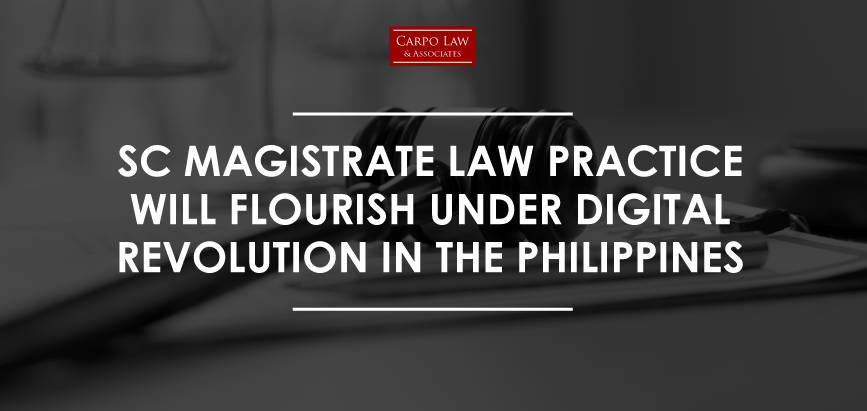
SC Magistrate Law Practice Will Flourish Under Digital Revolution in the Philippines
A Supreme Court (SC) Magistrate stated that the growing dependence on technology in the practice of law to keep serving justice despite the COVID-19 pandemic is staying and will develop more in the future.
SC Associate Justice Jhosep Lopez noted that as a repercussion of minimizing physical meetings and resorting to online interaction, “newly-minted lawyers have the advantage as the legal community shifts to technology in their practice of law.”
Lopez explained that the COVID-19 pandemic had disrupted the entire legal industry.
Lopez cited, “Hearings are conducted no longer in court premises, but remotely from the comforts of the parties and litigants’ own stations. Legal technology solutions have been replicating, if not even replacing, the usual law firm dynamics. Docket and filing fees have also incorporated convenient e-payment solutions. All of these initiatives are ongoing under the Technology-Driven Judiciary agenda of Chief Justice Alexander Gesmundo.”
Lopez emphasizes, “These are not interim measures, but rather, tectonic shifts in the practice of law.”
In addition, Lopez informed the new lawyers that under the digital revolution, they “are placed in a unique position to capitalize on these disruptions.”
Lopez cited, “This [gives you] a distinct advantage over other lawyers who have grown into a workflow rigidity, accustomed to a way of doing things in a world that has moved on.”
Aside from the new rules on online hearings, one of the most significant improvements of SC was resuming the Bar examination after a two-year pause.
Furthermore, instead of the usually centralized exams in Manila, examinees can now use laptops with special programs in various regional testing sites.

